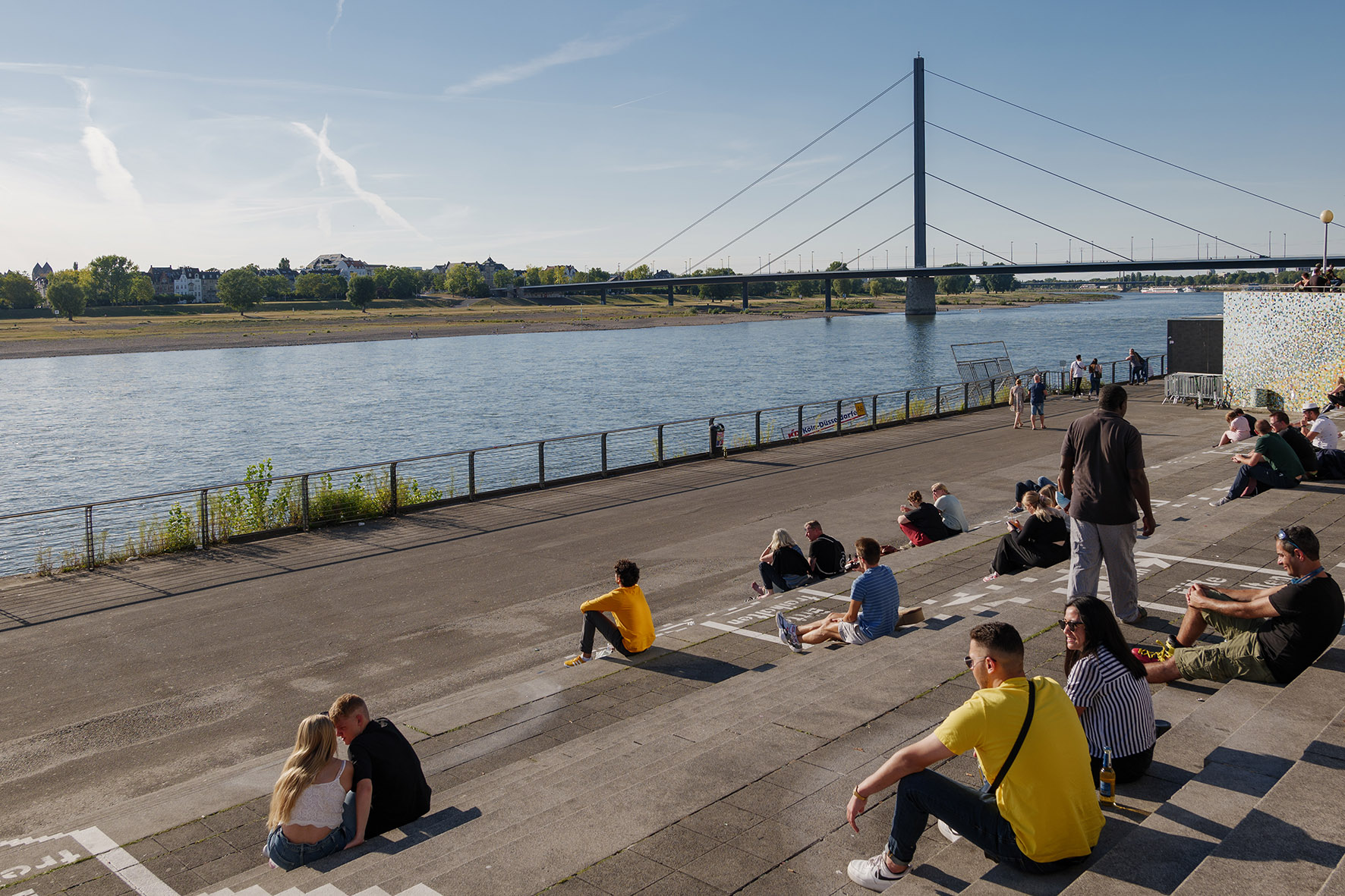Does Christianity need poetry?
Does Christianity need poetry?
Religions depend on poetry. Western Christianity has had a long love-hate relationship to this art of suggestion, that could either lure people into sin or give them a taste of eternity. How has the church integrated poetry throughout history?
Poetry is unsettling. It simultaneously praises the muses of beauty, love, and pleasure, and the desire of the soul to grasp ultimate meaning and presence. Poetry embraces the depths and the heights of human experience and spirituality. However, it is not self-evident that religions would use this literary genre to express their message. In many ways, poetry can be deemed excessively sensual. So, why and how would religions integrate poetry?
Poetry can be found in any religion. Piyyutim, for instance, are traditional Jewish liturgical poems.[1] Besides, the sacred book of Islam is called the Quran, which translates to ‘the recitation’.[2] This list of examples could continue, but for now, let us explore poetry in Western Christianity.
Poetry is a prophetic genre
In Greek antiquity, education was provided by poets who sang legendary stories and verses. In this oral culture, poetry was crucial to pass on common myths from one generation to the next. These first poets were called aeds, but they were, in fact, priests. The form of poetry they promoted was the hymn. Through time, poets became self-sustaining artists, singing not only about Gods but also heroes.[3]
Poets encapsulate a presence in words. They use symbols to give the impression that what is physically absent is in fact present to the senses.[4] They therefore remain connected to aeds.[5]
16th-century poet Pierre de Ronsard defines poetry as “an allegorical theology.”[6] The purpose of poetry is to let us feel and perceive what is too complex for our minds to understand. According to Ronsard, poetry is pedagogy about the divine. 19th-century writers Victor Hugo and Arthur Rimbaud portray two sides of the prophetic function of poets. While Hugo argues they are “visionaries,” tasked with guiding humanity into its future,[7] Rimbaud proclaims they are “seers,” who deregulate their senses in order to experiment what is unknown to man.[8]
The ‘Word of God’ is expressed poetically
The ambiguity between poetry and religiosity is persistent. It is not surprising that sacred books are woven into poetry. Through the eyes of Michael Edwards, writer and literary critic, the Bible appears to be inherently poetic.[9] Some books are specifically intended to be part of this literary genre, like the Song of Songs and the Psalms:
“Let the rivers clap their hands,
Let the mountains sing together for joy”[10]
More than that, the Bible contains numerous figurative stories, metaphors, parables, allegories… and countless hyperboles:
“And if your right hand causes you to stumble,
cut it off and throw it away”[11]
On another level, Christian theology itself is poetic. In Christianity, God is not directly revealed in Scripture. God reveals himself in Jesus Christ. Jesus’s life and death are, in themselves, the ‘word of God’.[12] That too, is tremendously poetic:
“He is dressed in a robe dipped in blood,
and His name is the Word of God.”[13]
The language of the Bible strikes the imagination. Its musicality was obvious to the first people who heard it. Indeed: not until recently were Jewish and Christian believers able to read the Bible, each in their everyday language. Current mass literacy and printing should not have us forget that for a long time the books of the Bible were copied only to be read in assemblies.[14]
Poems serve the purpose of the church
Western Christianity did not frame the Bible as poetic until the 5th century, says Michel Zink in his book Poetry and Conversion in the Middle Ages. Until then, it was believed that this literary genre was essentially pagan and therefore dangerous. If poetry was a divine medium, it was definitely not that of the Judeo-Christian God.[15]
Zink notes that it took the literary knowledge of Saint Jerome to admit that the Bible contained actual books of poetry. The scholar was confident that the Bible was superior to classic literature; from his point of view, the Christian message could only benefit from profane wisdom and art. He encouraged Christians to assimilate classic literature and bring about one of their own. This had tremendous consequences in the Middle Ages.[16]
Poetry therefore became acceptable and justified. It was converted and would, in turn, convert souls. ‘Conversion’ meant the constant return to God and the acceptance of his primacy in human affairs. Literature became a means to expand Christianity in the West. From then on, Christian poets could identify as prophets.[17] One of their role models was David, the alleged writer of the Psalms and a prophet that “explained the sacred mysteries on his divine lyre.”[18]
A myriad of poems was then written. It not only served the purpose of prayer and meditation of the Bible, but also theological and political confrontation. For example, the Protestant Reformation and Counter-Reformation movements publicised their disagreement through bitter poems.[19] Western Christianity had successfully integrated the poetic genre as part of its own culture.
Poetry and Christianity: a love-hate relationship
Poetry is an integral part of religiosity. In fact, it is probably its native language. As we have seen before, the texts that were to be read in assemblies were intensely poetic. Western Christianity remained nonetheless blind to their power of suggestion; until it redefined poetry as a means to turn souls to God.
From then on, poetry about the divine was not only in the Bible. The recitation of the ‘word of God’ was supplemented with proclamations of faith. These expressions of faith and subjective discourses about God were condensed in poems. The church nevertheless remained jealous of the power of poetry. Poetry magnifies ordinary experiences of beauty and decay. It tends to look for the inner dignity of these experiences, and make them meaningful in themselves. On the contrary, Christianity aims at changing humanity in regard to an outer standard: that of God. Through its social influence, the Church has contributed to censoring ‘immoral’ poems even during the 19th century.[20]
Whether it prompts moral decay or spiritual elevation, Western Christianity cannot reject poetry. It has become an essential part of religious experiences.
Want to read more about similar topics? Go to the EARS Dashboard and get free weekly updates.
[1] Piyyut | Jewish literature
[2] Qur’an | Description, Meaning, History, & Facts
[3] Alexis Pierron, Histoire de la littérature grecque, Hachette, 1875
[4] Régis Debray, Vie et mort de l’image, Gallimard, 1992 (“To represent is to make the absent present.”)
[5] Alexis Pierron, Histoire de la littérature grecque, Hachette, 1875
[6] Pierre Laumonier, Ronsard, poète lyrique, Hachette, 1909
[7] Victor Hugo, Les rayons et les ombres, Delloye, 1840
[8] Arthur Rimbaud, Letter to Paul Demeny, 15th of May 1871
[9] Michael Edwards, Bible et poésie, Editions de Fallois, 2016
[10] Psalm 98, 8
[11] Matthew 5, 30
[12] Jean Zumstein, L’Évangile selon Jean, in Daniel Marguerat, Introduction au Nouveau Testament, Labor et Fides, 2008
[13] Revelation, 19-13
[14] Jean Zumstein, Sauvez la Bible. Plaidoyer pour une lecture renouvelée, Editions du Moulin, 1985
[15] Michel Zink, Poésie et conversion au Moyen Âge, Presses Universitaires de France, 2014
[16] Michel Zink, Poésie et conversion au Moyen Âge, Presses Universitaires de France, 2014
[17] Michel Zink, Poésie et conversion au Moyen Âge, Presses Universitaires de France, 2014
[18] Véronique Ferrer, La lyre protestante : Calvin et la réforme poétique en France, Revue de l’histoire des religions, 2009
[19] Philippe François, Anthologie protestante de la poésie française, Labor et Fides, 2020






